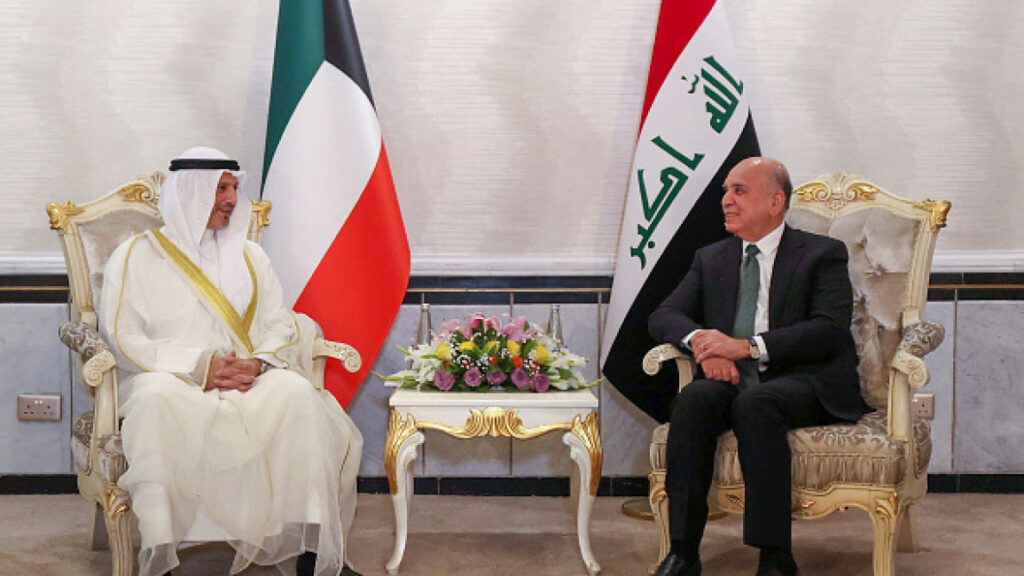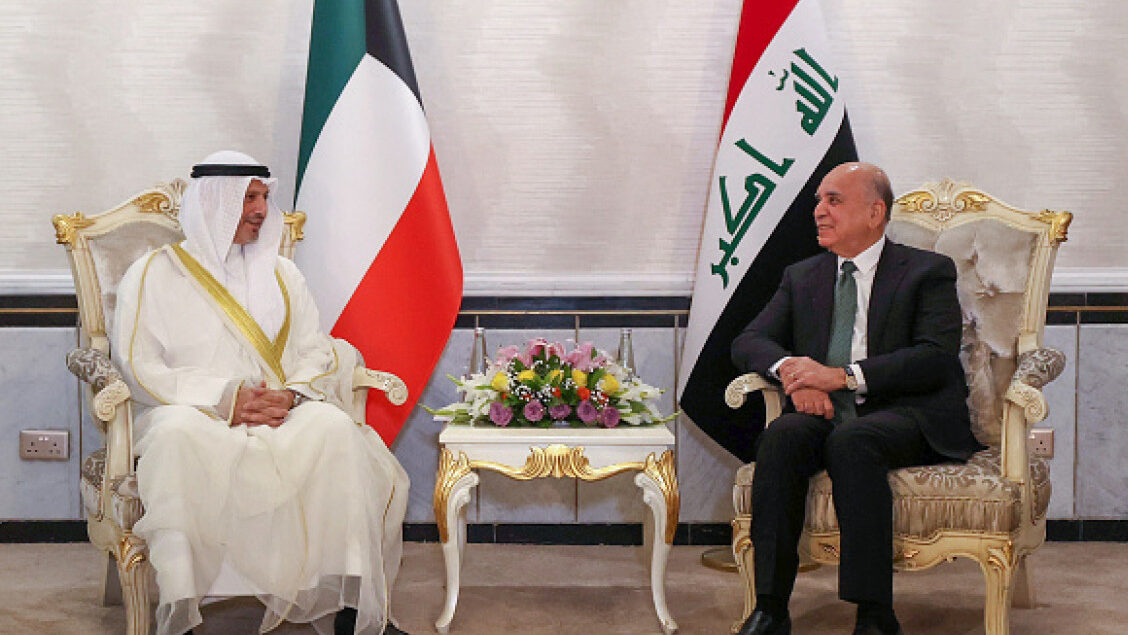Kuwait Denounces Iraq’s Annulment of Khor Abdullah Maritime Agreement
By [Your Name], Professional Journalist
In a significant diplomatic dispute, Kuwait has strongly criticized a recent decision by Iraq’s Federal Supreme Court to annul the 2012 Khor Abdullah maritime navigation agreement. The agreement, which played a crucial role in regulating navigation in the Khor Abdullah waterway, has been a key element in shaping Kuwait-Iraq relations. Kuwait has expressed deep concern over this ruling, calling it a violation of international law and a threat to regional stability.
Background of the Agreement
The Khor Abdullah waterway is a strategically important passage located between Iraq and Kuwait, linking the Persian Gulf to Iraq’s Umm Qasr Port. The waterway facilitates a significant portion of Iraq’s oil exports and plays a vital role in Kuwait’s maritime activities.
To regulate navigation in this shared waterway, both countries signed the Khor Abdullah Agreement in 2012. The treaty was officially ratified by the Iraqi Parliament in 2013 and subsequently registered with the United Nations. The agreement aimed to:
- Ensure safe and efficient navigation in the Khor Abdullah waterway.
- Strengthen bilateral cooperation between Kuwait and Iraq.
- Prevent disputes over maritime boundaries.
- Enhance regional stability and trade.
This agreement was seen as a significant diplomatic step forward, considering the turbulent history between the two nations, including Iraq’s 1990 invasion of Kuwait and the subsequent Gulf War.
Iraqi Court’s Decision and Justification
On September 4, 2023, Iraq’s Federal Supreme Court ruled that the law ratifying the Khor Abdullah Agreement was unconstitutional. The court’s primary reasoning was based on a technicality—it argued that the Iraqi Parliament approved the agreement with a simple majority, whereas the Iraqi Constitution requires a two-thirds majority for international treaties.
The ruling effectively nullifies Iraq’s commitment to the agreement, raising questions about the future of maritime cooperation between the two nations. Iraq’s decision has also drawn criticism for being influenced by nationalist rhetoric, with some Iraqi politicians opposing past agreements with Kuwait and advocating for a revision of border-related treaties.

Kuwait’s Strong Reaction
Kuwait has responded with firm condemnation. Foreign Minister Sheikh Salem Abdullah Al-Jaber Al-Sabah criticized the Iraqi ruling, stating that it was based on “ahistorical claims” and does not reflect the reality of past agreements.
The minister reaffirmed Kuwait’s commitment to the 2012 agreement and called on Iraq to respect its international obligations. He also emphasized that the agreement was legally binding and was registered with the United Nations, making its annulment a breach of international law.
Speaking at a recent Gulf Cooperation Council (GCC) ministerial meeting, Sheikh Salem raised concerns about the ruling and sought support from regional allies. The matter was also discussed with U.S. Secretary of State Antony Blinken, underlining the wider geopolitical implications of the dispute.
Implications for Bilateral Relations
The annulment of the Khor Abdullah Agreement has serious implications for Kuwait-Iraq relations. Kuwait sees the agreement as essential for maintaining maritime security and preventing illegal activities such as arms and drug smuggling. Without a structured maritime treaty, there is potential for:
- Increased border tensions between Kuwait and Iraq.
- Disruptions in trade and oil exports due to maritime disputes.
- Challenges in enforcing security measures in the region.
- Negative impacts on regional cooperation and diplomacy.
Kuwait has urged Iraq to clarify its position and take immediate steps to address the consequences of the ruling. The future of bilateral negotiations will be crucial in determining whether both nations can salvage their maritime agreement or find an alternative solution.
International and Regional Responses
The international community has been closely monitoring the situation, given its potential impact on Middle Eastern stability and global energy markets. The Gulf Cooperation Council (GCC) has publicly expressed solidarity with Kuwait, calling for Iraq to honor its existing agreements.
Moreover, legal experts have pointed out that since the agreement was registered with the UN, Iraq’s decision to unilaterally annul it raises international legal concerns. This could potentially lead Kuwait to pursue legal action at the UN or other international bodies if diplomatic solutions fail.
Historical Context of the Dispute
The Kuwait-Iraq maritime boundary has long been a contentious issue. After Iraq invaded Kuwait in 1990, the United Nations Security Council passed Resolution 833 in 1993, which formally delineated the land borders between the two nations. However, maritime boundaries remained a point of dispute, leading to the 2012 Khor Abdullah Agreement.
With Iraq’s annulment of the treaty, concerns are growing that other border agreements could also be challenged, further destabilizing relations between the two neighbors.
Potential Paths Forward
Given the seriousness of the situation, diplomatic engagement will be key in resolving the dispute. Potential solutions include:
- Negotiating a Revised Agreement: Both nations could renegotiate the maritime pact to address Iraq’s constitutional concerns while preserving bilateral cooperation.
- International Arbitration: Kuwait could seek legal intervention from the United Nations or the International Court of Justice to challenge Iraq’s decision.
- Regional Mediation: The GCC and other Gulf states could play a mediatory role in facilitating discussions between Iraq and Kuwait to find a peaceful resolution.
- Upholding Existing Treaties: Kuwait insists that Iraq must honor international agreements and work towards reinforcing, rather than dismantling, established diplomatic accords.
Conclusion
The annulment of the Khor Abdullah maritime agreement by Iraq’s Federal Supreme Court has ignited a serious diplomatic crisis with Kuwait. This ruling not only threatens bilateral relations but also undermines regional stability.
Kuwait has urged Iraq to reconsider its decision, emphasizing the importance of maintaining legal and diplomatic commitments. As the GCC, United Nations, and global stakeholders closely watch the developments, the next steps taken by Baghdad and Kuwait City will be crucial in determining whether this dispute escalates or is peacefully resolved.
Do follow gulf magazine on Instagram
for more information click here



